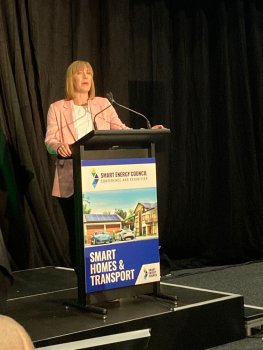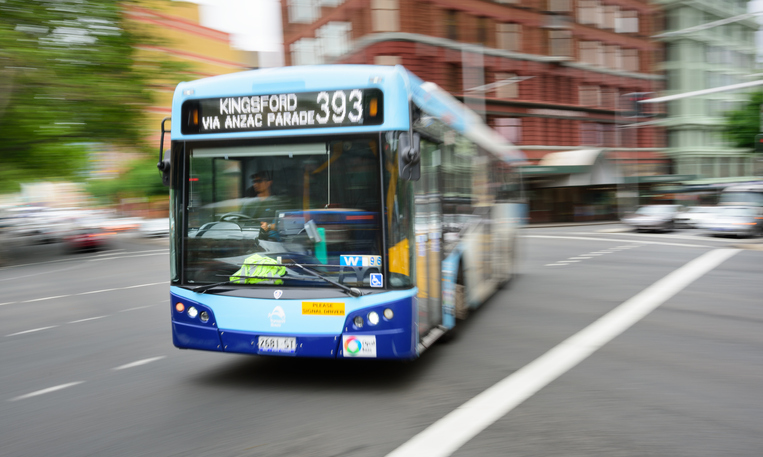The NSW transport minister has outlined the government’s vision for smart transport in her first major address to an industry gathering.

Speaking at the Smart Energy Council Conference in Sydney, Minister Jo Haylen foreshadowed upcoming announcements about micromobility, improvements to the state’s bus service and a nationally consistent decarbonisation policy framework.
“Government needs to go beyond just civil service delivery,” she told the conference on Wednesday.
“We need to reimagine our role as leaders and enablers in the transition to net zero transport and infrastructure.
“Transport isn’t just a service, it’s an essential tool to deal with climate change, and all levels of government have to be a part of this change.”
Ms Haylen said transport is the fastest growing source of emissions in Australia and is set to overtake electricity as the largest source of emissions by the end of the decade.
Our goal is that every journey in NSW will be zero emissions by 2050 with TfNSW’s own operations are net zero by 2030.
Jo Haylen
Most of the growth is coming from cars and trucks, so public and active transport is critical to addressing the problem, she said.
Towards net zero travel
Ms Haylen said the government aims to have every journey in NSW emissions free by 2050, with TfNSW’s own operations net zero by 2030.
“To do that we’re minising energy demand, improving efficiency, sourcing renewable energy and electrifying our public transport assets wherever possible,” she said.
My Haylen said the state’s entire electrified passenger rail network will be powered by zero emissions electricity by 2025, while the government is doubling the budget for active transport and accelerating construction of footpaths and cycleways, particularly in western Sydney growth areas.
It should be simple to walk and cycle kids to school, which will reduce thousands and thousands of short trips every morning and afternoon.
Jo Haylen
“It should be simple to walk and cycle kids to school, which will reduce thousands and thousands of short trips every morning and afternoon,” she said.
The minister said the government is currently exploring micromobility solutions and foreshadowed some announcements in coming months.
The government is also moving toward the transition of its 8,000 strong diesel bus fleet, with 200 zero emission buses set to join the fleet by the end of the year 1,700 more on the road by 2028.
Bus industry taskforce
Apart from climate concerns, Ms Haylen said she will also be focusing on ensuring public transport is accessible, affordable and reliable, with emphasis given to critical projects in western Sydney including the Parramatta light rail, and ending privatisation.
She said the newly-released bus industry taskforce was a first step in improving bus services via a review of contract performance management, among other things.
“You’ll see movements and announcements from our government about working with industry to accelerate that transition and to use our task force to get their recommendation and move forward as fast as possible,” she said.
Nationally consistent framework
The government will also be taking action to eliminate emissions embodied in transport assets, which accounted for an estimated five to ten per cent of all transport emissions, Ms Haylen said.
“I know that industry is crying out for governments to show leadership in this space and create consistent policy across states and territories.
“Already we are co-leading with the Commonwealth to develop a nationally consistent framework to decarbonise our infrastructure industry, and I’m going to have more the say about providing new guidance to industry about how you can work with us and leverage our thinking to collectively reduce emissions.”
Ms Haylen said for the first time in NSW, the government’s emissions targets of net zero by 2050, and a 50 per cent reduction on 2005 emissions by 2030, will be enshrined in legislation.
As previously announced, the NSW government will also establish a net zero commission to drive decarbonisation across government.





There’s a shortage of drivers for busses, trains and trucks in NSW.
What’s the Government vision on resolving that problem?
What about the 15 Minute Cities, how will that fit into the Transport Plan ?